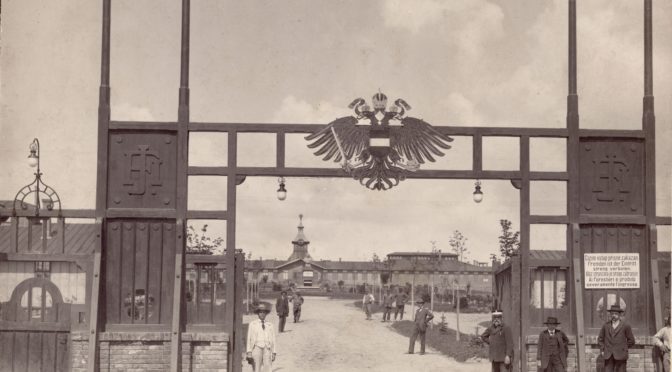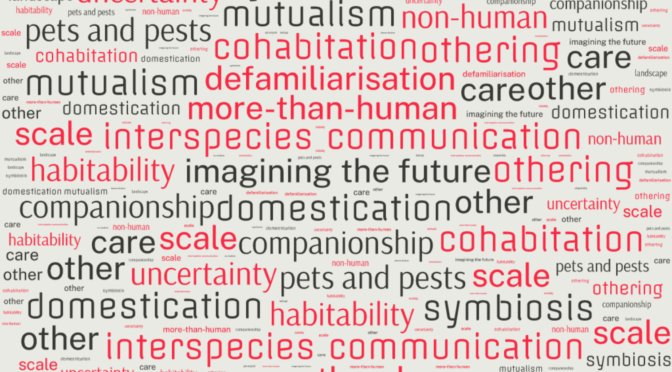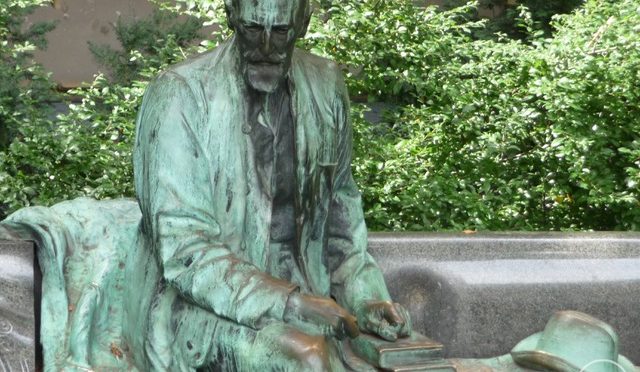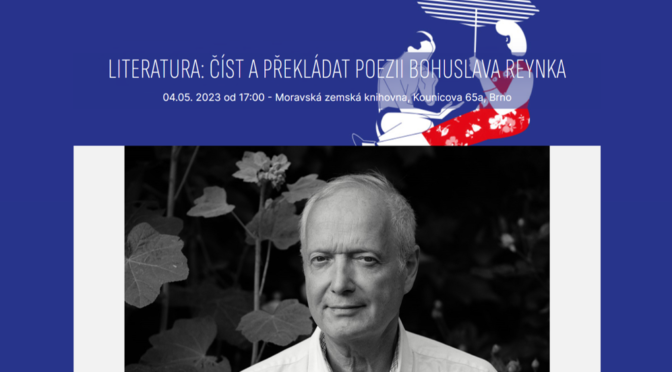
Seventh session of the 2018 common epistemological seminar of CEFRES and IMS FSV UK led by
Lucie Trlifajová (FSV UK / associate at CEFRES)
Regaining Control, Reconstituing Citizenship: Welfare Policies in Decaying Regions
Where: CEFRES – Na Florenci 3, Prague 1, 3rd floor, entrance C
When: Thursday 17 May 2018 from 3:30 pm to 5 pm
Language: English
Text:
- Yuval-Davis, Nira. Introduction. Framing the questions, in: (id.) The politics of belonging: Intersectional contestations. Sage 2011, pp. 1-25.

A lecture by Alena Jindrová (Museum of Vysočina Region, Havlíčkův Brod – CZ) in the frame of the Seminar on contemporary Jewish History organized by the Masaryk Institute and Archives of the Czech Academy of Sciences, CEFRES and the Prague Center for Jewish Studies
Where: CEFRES Library, Na Florenci 3, 110 00 Prague 1
When: from 5:30 pm to 7 pm
Language: English
Abstract
During the WWI, refugees came mainly to the central parts of monarchy – Bohemia, Moravia and Austrian lands (Carinthia, Carniola, Lower Austria, Upper Austria). As the war broke out, the first camps were hastily built and transports of refugees were organized by the authorities. But many people fled their houses in chaos and were unable to support themselves. My research project focuses on the refugee camps in the Czech lands and the institutions that were in charge of refugees. So far, no summarizing study deals with the history of refugee camps in the area of the present Czech Republic, such as the large camps in Havlíčkův Brod, Choceň, Kyjov, Mikulov, Pohořelice, Moravská Třebová and Uherské Hradiště. Especially the history of the Moravian camps remains undocumented and we miss even basic a knowledge about when and how they were founded, built, and administrated, and for how many refugees they were intended. I also examine state attempts to control and support refugees and the organization of the aid. Baron Hirsch Fund, Israelitische Alliance in Wien and some regional societies played an important role in providing for the refugees. But in spite of efforts of government and activists, many difficulties remained: research project also focuses on the problematic aspects of the refugee relief, including the history of camps and fates of refugees towards the end of the war.
In cooperation with the “Unlikely refuge?” project.
Ten contracts for post-doctoral students are available at the EHESS starting from September 2015 for a year. Those jobs concern the different fields of the humanities and social sciences. They are available to young researchers who defended their PhD dissertation between January 1st 2012 and April 7th 2015, in a French of a foreign institution outside the EHESS.
Deadline for application’s submission: 11 May 2015.
See the call for applications on EHESS website

A round-table discussing conceptual and practical issues related to the establishment of a “Post-anthropocentric” reading group as part of the Tandem project. The X in the title refers to the various themes and topics that shall be explored within the reading group through post-anthropocentric lens.
The reading group is to discuss theoretical and conceptual, onto-epistemological and possibly also methodological issues in relation to what we preliminarily term “post-anthropocentric dwelling”, i.e., the entanglement of humans in a web of more-than-human relations as part of widely conceived dwelling as well as human homes. In recognition that humans share their home(s) with non-humans, living as well as inanimate, we would like to probe questions such as:
- How does acknowledging of the more-than-human entanglements challenge the established notions of dwelling and related concepts of home and landscape?
- How can we as scientists devoted to the study of humans (and their dwelling) reflect in novel ways on encountering non-humans at and around home?
- What new conceptual terrains can be opened up by inviting non-humans into our thinking about human dwelling(s)?
How can social science become sensitized, epistemologically and methodologically, in order to better engage with and approach the more-than-human complexities of dwellings?
The roundtable is a closed event. In case you are interested in the theme and would like to become part of the reading group or want to learn more, do not hesitate to contact the Tandem team: Petr Gibas (petr.gibas(at)soc.cas.cz) and Chloé Mondémé (chloe.mondeme(at)cnrs.fr).

Reading Sándor Ferenczi: Mutual Analysis and the Hungarian Origins of Trauma Theory
3rd session of the Seminar “Rethinking Psychoanalysis in Central Europe. Interdisciplinary and Transnational Perspectives”
When: Tuesday, May 24, 2022, 4:00-5:30 pm
Where: At CEFRES and online (to register please contact claire(@)cefres.cz)
Language: English
Coordinator and discussant : Agnieszka Sobolewska (University of Warsaw/Sorbonne University/CEFRES)
Guest speaker : Peter L. Rudnytsky (University of Florida/American Psychoanalytic Association)

Prof. Xavier Galmiche, eminent French Bohemist and winner of the Premia Bohemica Prize (2020), introduces Bohuslav Reynek’s poetry in French translations and his interpretation of his œuvre. The event takes place on the occasion of the 100th anniversary of the meeting of Bohuslav Reynek and Suzanne Renaud.
When: Thursday May 4th 2023 at 17:00
Where: Moravian regional library, Kounicova 65a, Brno
Language: Czech Continue reading Reading and translating Bohuslav Reynek’s poetry →





